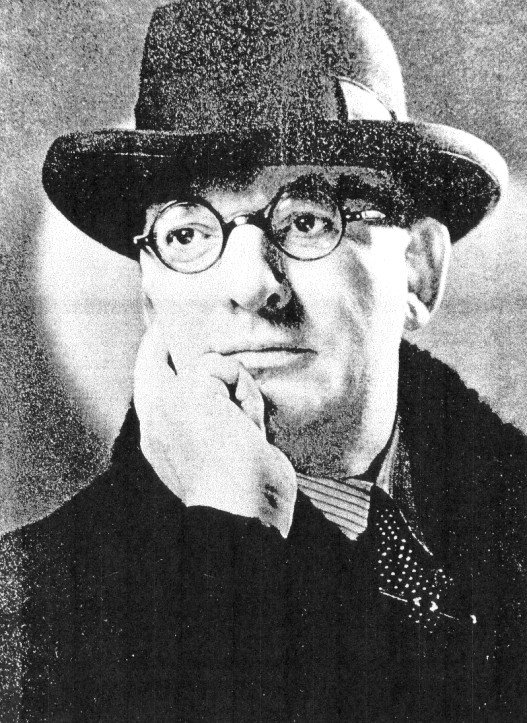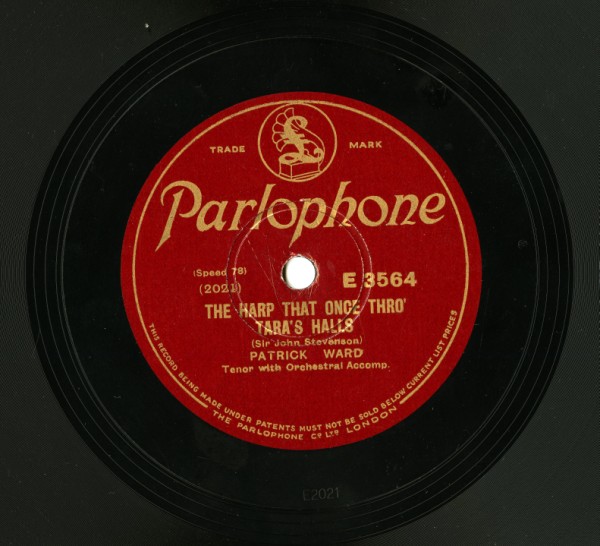PORTLAOISE'S FIRST RECORDING STAR
His career seems to have been closely followed by, in particular, the Irish Independent. Its issue of October 21, 1927 reported that Ward,
"gifted with an agreeable voice which gained him a high reputation on his debut in Ireland in 1924", was planning
a concert in Dulwich in aid of ex-servicemen. According to the same article, he could sing in twelve languages and,
some years later, the programme for a variety concert in the Scala theatre in London described him
as "the Irish Caruso"1. The obituary and article by Mr Meehan both mention that, as well as being one of the first Irish men
to sing on the BBC, he also appeared in films. Both sources mention Sweet Iniscarra, partly filmed in Portarlington and Emo, but now sadly lost.
They also say that he sang at the Eucharistic Congress in Dublin in 1932. John McCormack's rendition of Panis Angelicus at High Mass in the Phoenix Park
seems to have entered the national psyche but, so far, my research has not revealed any details of Patrick Ward's performance which, I have been told, took
place on O'Connell Bridge. Any information on this subject would be gratefully received.
The abovementioned La Scala concert must have been one of his last
professional stage performances because, in February 1932, he
announced2 that he was retiring from the stage to take up teaching.
He had already opened two studios in London and, in 1934,
the following notice appeared in the Irish Independent:
[As early as 1923, he had been - no pun intended - awarded a Certificate of Competency and Teacher's Diploma at the Perfect Voice Instution
of Chicago and received testimonials from various Maestros. Here's one:
[I suspect that the title of Professor had more
to do with artistic promotion than any advanced academic qualifications. I may be wrong so, again, any clarification would be welcome.
There are,
incidentally, relations of Ward's still living locally and, without exception, those I spoke to referred to him as "the Professor"].
Whatever his pedagogic status, he continued to teach throughout the 1930's and '40's,
and also published three books: The Keynote to Song and Good Health, The True Art of Bel Canto
Singing4 and Correct Breathing is Nature's
Way to Perfect Health, Happiness and Success.
The latter sounds like something that would sit perfectly in the Self-Help section of bookshops today.
He was also a songwriter and, in 1949,
published Five Songs: An Album for Medium Voice.
He may have retired from concert performances, but in the early 1940's he made
several broadcasts on Radio Eireann, the precursor of RTE Radio One today. On December 15, 1941, for instance, he performed a programme of songs by
W. H Squire5 and on May 9, 1942 and September 8, 1943, his repertoire featured songs
by a wide variety of composers6.
1
Irish Independent. February 3, 1931
2
Irish Independent. February 9, 1932
3
Letter from Maestro Molica to Patrick Ward. Naples. July 1925.
4
According to it's publicity marerial, "the series of exercises in this book were practised by Caruso, Melba, Galli Curci, Tetrazzini, Chaliapin etc."
5
British composer and Professor of cello at both the Royal College and Guildhall schools of music. He was one of the earliest musicians to
make a gramophone recording (October, 1898).
6
Details of Radio Eireann broadcasts courtesy Jack Smith, RTE Archives.




HOMEPAGE